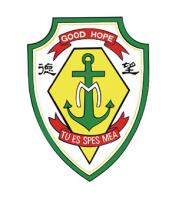| Language Policy |
English is the medium of instruction of the school. All lessons and school activities, with the exception of those that are related to the Chinese Key Learning Area and Chinese History, are conducted in English. Putonghua is used for Chinese Language (Key Stage 3) and all Chinese-related activities, while Cantonese is used for Chinese Language (Key Stage 4), Chinese Literature (Key Stage 4) and Chinese History (Key Stages 3-4). Small class teaching has been adopted in some core and non-core subjects at all levels to foster an interactive learning environment which is conducive to the building of a strong language and knowledge foundation.<br>To immerse students in a language-rich environment, students are encouraged to speak either in English or Putonghua on campus. Language activities such as debating, drama, musicals, extensive reading and public speaking are organized to strengthen students’ language proficiency and to nurture them to be biliterate and trilingual. |
| Learning and Teaching Strategies |
Student-centred learning and teaching strategies are employed in our classrooms to enable our students to take ownership over their learning. Students are given ample opportunities to develop and practise skills which are essential as 21st century self-directed learners. Special emphasis is also placed on differentiated instruction in order to address learner diversity. |
| School-based curriculum |
1. Electives: 3X. More than 200 subject combinations are available for students to choose from.<br> 2. Curriculum highlights: Chinese Language (For NCS Students), Chinese History (For NCS Students), S.1-S.2 STEAM, S.1-S.2 Foreign Languages, S.3 skill-based curricula of non-core subjects and S.1-S.6 Reading Programme. |
| Approach to Catering for Learner Diversity |
Enrichment and enhancement programmes of various modes are provided. Language intervention is available to help raise students’ language ability. Differentiated instruction and streaming are other measures adopted to cater for learners’ diverse needs. Special programmes are run to support athletes and band members. |
| Approach to Integrated Education |
Good Hope School adopts a whole-school approach in supporting students with Special Educational Needs (SEN). With the support of the Learning Support Grant, our school is dedicated to assisting SEN students to unleash their potential in learning and adapt to the school environment.<br><br>The Individual Needs Team consists of a School Counsellor and 7 teachers from different Key Learning Areas. The team is also supported by Educational Psychology Service provided by professional organisations. Based on the recommendations provided by the professionals, our school offers examination accommodations for assessments.<br><br>Maintaining constant communication with parents has always been our top priority. Through online platforms, face-to-face parent's meetings and telecommunication, we work closely with parents in assisting SEN students. |
| Education Support for Non-Chinese Speaking (NCS) Students |
|
| Home-School Co-operation |
There is close collaboration between the school and parents. Each year, three-way conferences are held among teachers, parents and students. Through its website, the PTA issues newsletters and organizes talks and workshops for parents. Many parents also serve as volunteers in various activities organized by the school. |
| School Ethos |
The integral formation of the whole person is the primary aim of the school. Equal importance is given to the laying of a sound moral foundation, the acquisition and maintenance of proper values, intellectual formation and the development of a sense of responsibility, social and environmental awareness. Each student is expected to take an active part in different activities and to benefit from the Christian education provided, so as to learn to be joyful, caring, forgiving and grateful persons. |
| School Development Plan |
Good Hope School's development plan is centered on student achievements and well-being within the GHS community. The school focuses on all the components of school life that are necessary to create an enriched positive school experience for our students. A whole-student approach is taken together with a look into the future and the mandate to provide an education that encourages creativity, a global perspective, respect and openness to all future possibilities. By taking the stance that we are nurturing women leaders of tomorrow, Good Hope School is forward looking while providing a solid educational foundation rooted in core Catholic values. |
| Teacher Professional Training and Development |
Ultimately the goal of professional development is to improve student achievements and well-being within the GHS community. At Good Hope School, professional development is one of the strategies we use to strengthen teaching practice while focusing on student needs. Professional development establishes positive collaborative learning environments which translate into exciting and engaging experiences for our students. |
| Life-wide Learning |
There are over 60 clubs under six main categories: Music, Academic, Religion, Uniform Groups, Interests and Sports. Students are encouraged to participate in different competitions, seminars and training programmes. Visits to local museums, field trips, overseas exchange programmes and theme-based excursions are arranged for students every year. |
